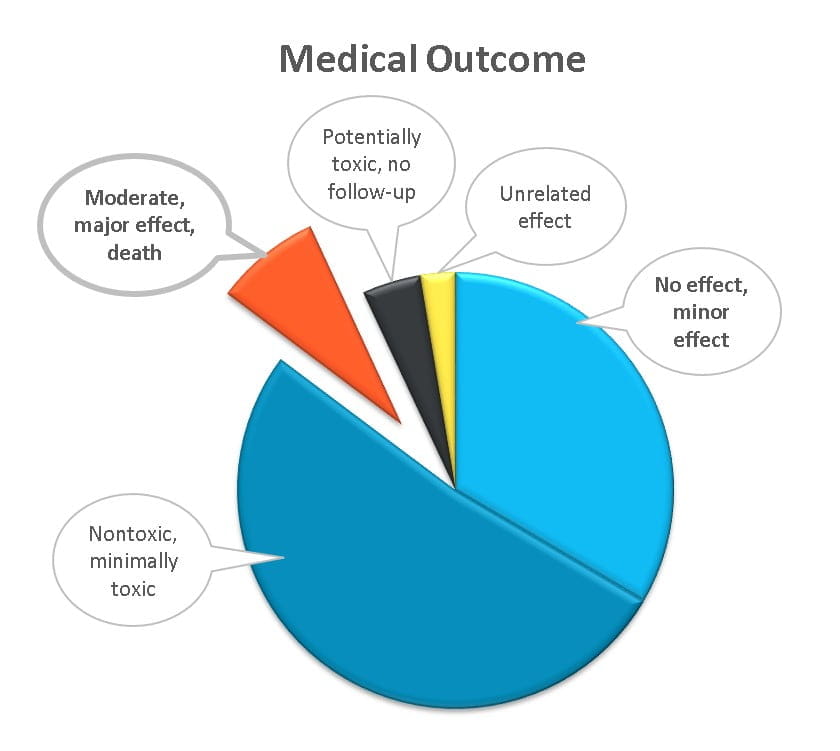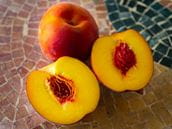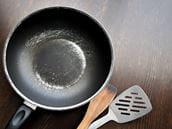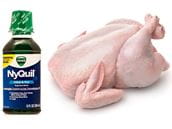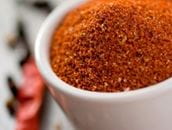
Capsaicin: When the "Chili" Is Too Hot
Capsaicin, the active ingredient in hot peppers, can be intensely irritating on the skin, in the eyes, to the stomach and gastrointestinal tract, and if inhaled.
Displaying 181 - 190 of 680 results for "hydrogen peroxide and iodine"
Capsaicin, the active ingredient in hot peppers, can be intensely irritating on the skin, in the eyes, to the stomach and gastrointestinal tract, and if inhaled.
Campylobacter is one of the most common causes of bacterial diarrhea. The illness is campylobacteriosis. Symptoms include diarrhea, fever, abdominal cramps and pain. Campylobacter is found on raw vegetables, dairy products, poultry, and meat. It is also in the stool of contaminated people and animals. Treatment is mostly supportive; stay hydrated. If severe, antibiotics may be indicated.
Skittles contain titanium dioxide, a chemical used as a whitening agent in foods. Titanium dioxide is associated with cancer development after inhalational exposures, and it may have effects on DNA and gastrointestinal system function.
There is some evidence that people who eat a lot of charred or very well done meat have a higher risk of cancer, particularly of the breast, prostate, colon, rectum, and pancreas. To minimize the potential risks, minimize both the amount of time that meat is cooked at high heat and the amount of smoke in contact with the meat.
Peach pits and other seeds from the plant family Prunus contain a potentially dangerous chemical called amygdalin that can creates poisonous cyanide when digested. While swallowing a single pit is unlikely to cause cyanide poisoning, consumption of several unprocessed pits can produce symptoms.
All parts of the horse chestnut tree are toxic, but the greatest concern is for horse chestnut seeds. These can be easily mistaken for edible chestnuts. Horse chestnut seed pods usually contain only one seed, while edible chestnut pods contain multiple seeds. Eating horse chestnuts can result in serious stomach upset.
Teflon flu is a condition caused by inhaling fumes from burning polymer products, usually nonstick cookware. While the symptoms are generally mild and self-limiting, they can be more serious in people with underlying lung problems and can be fatal to pet birds. Teflon flu can be easily prevented by using a few simple, safe cooking techniques.
Viral videos on social media promote a trend called “NyQuil™ chicken” that involves cooking chicken in cough and cold medication. This is dangerous and may result in poisoning, both from the ingredients in NyQuil™ and the undercooked chicken.
Some children have been poisoned by lead and cadmium in children's products. Cadmium is a metal which, if swallowed, can cause kidney and bone damage. There are no proven effective treatments for excess cadmium in the body, so preventing cadmium poisoning is the most important thing.
Kinetic Sand is a fun sensory toy. Sand is not poisonous when swallowed, but it might cause constipation or gastrointestinal obstruction.
Don't guess what you should do. Get accurate Poison Control answers online or by phone. Both are free and confidential.
or CALL 1-800-222-1222
The Poison Post® is a free, quarterly
e-newsletter delivering poison prevention tips right to your inbox!
Learn the Poison Help jingle in English or Spanish. Use these jingles to teach the Poison Control number: 1-800-222-1222. Available for download.
